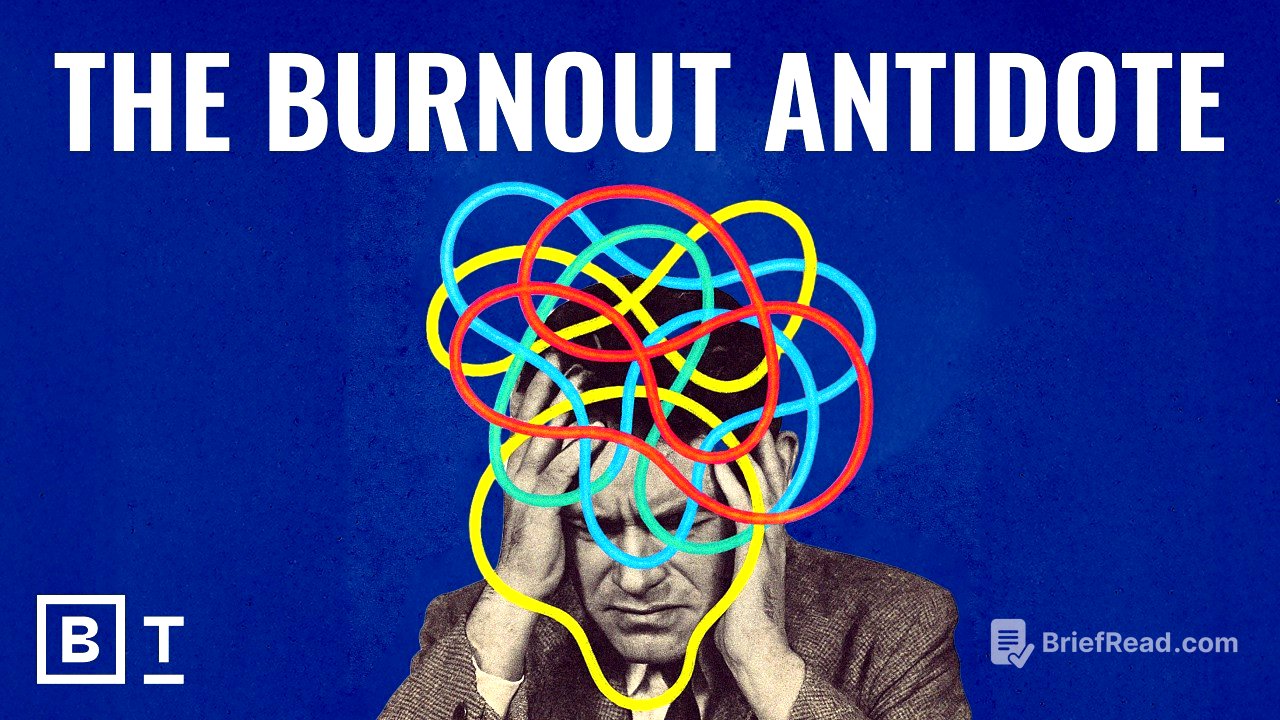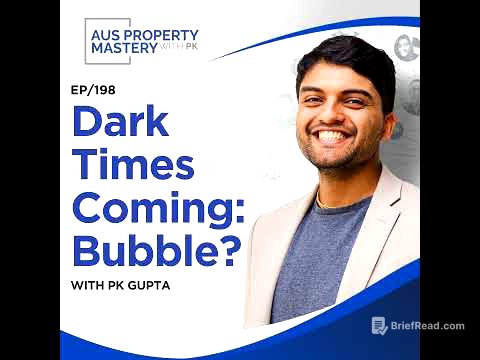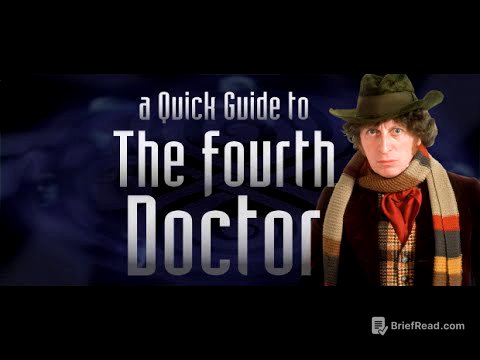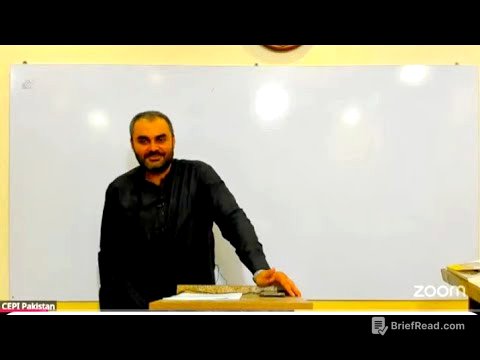TLDR;
This video explores how to break free from toxic productivity and find genuine purpose through experimentation and self-awareness. It challenges the conventional linear model of success, advocating for embracing curiosity, managing cognitive overload, and understanding subconscious mindsets. The video introduces practical tools like affective labeling, the triple check for procrastination, and self-anthropology to redesign one's life consciously and connectedly.
- Toxic productivity stems from comparing ourselves to others on social media, leading to overwork and neglecting mental health.
- Finding purpose is about experimentation and curiosity, not rigid planning.
- Overcome cognitive overload by prioritizing discovery and enjoyment over external definitions of success.
- Embrace an experimental mindset, viewing failures as learning opportunities.
- Practice self-anthropology to understand what energizes and drains you, aligning your life with your true self.
Staring at the leaderboard [0:00]
The current social media landscape fosters a competitive environment where individuals constantly compare their success to others, leading to toxic productivity. This involves overworking to climb the social ladder quickly, driven by the belief that success equates to happiness. Consequently, people create rigid systems and routines, often at the expense of their mental health.
Finding your purpose [0:40]
Happy people often discover their passion by chance, suggesting that finding purpose is less about actively seeking it and more about following curiosity and experimenting. This involves exploring new things and trusting that one will eventually find what makes them excited to start the day.
Cognitive overload [1:21]
Many people experience cognitive overload due to the rapidly changing world and the pressure to stay informed and productive. This constant influx of information and the need to keep up with changes create anxiety, as individuals question their progress and ambition. Tiny experiments offer an alternative by focusing on discovery and enjoyment based on curiosity rather than external success metrics.
Linear vs experimental [2:14]
A linear model of success assumes a fixed outcome achieved through a specific sequence of steps (A, B, C). This model is problematic because it presumes one knows their destination and that their ambitions will remain constant. The freedom to choose our response to stimuli allows us to avoid automatic reactions and consciously decide how to act in any situation.
Affective labeling [3:29]
When facing disruptions, people often ignore the emotional experience and immediately try to solve the problems. Affective labeling, or naming your emotions, helps connect with and understand those emotions for better management. This practice reduces activity in the amygdala (unconscious emotional processing) and increases activity in the prefrontal cortex (rational thinking). Describing a landscape can also help to practice affective labeling.
3 subconscious mindsets [4:47]
Mindsets influence decisions, thoughts, relationships, and feelings, distinguishing between conscious living and autopilot. Three subconscious mindsets hinder happy, conscious lives: the cynical, escapist, and perfectionist mindsets. The cynical mindset involves a loss of curiosity and ambition, often accompanied by making fun of earnest individuals. The escapist mindset retains curiosity but abandons ambition, leading to escapism through activities like retail therapy or binge-watching. The perfectionist mindset combines high ambition with low curiosity, seeking certainty through work. These mindsets are fluid and can change based on situations and ambitions, and they are not fixed personality traits.
Experimental mindset [6:48]
The experimental mindset involves high curiosity and ambition, where individuals design experiments instead of chasing linear goals. This mindset views failures as data points for learning and embraces uncertainty. Real growth requires both trial and error, allowing for a conscious and connected life design.
Information vs knowledge [9:04]
Experiencing thirst for water activates the same brain parts as thirst for information. It's hard to differentiate between information and knowledge. Information is just data from any source, while knowledge is data collected from the real world. Uncertainty fuels anxiety, as brains are wired to fear it. People seek quick answers, preferring bad news over waiting due to the stress caused by uncertainty. Uncertainty causes more stress than individual pain. Seeking uncertainty allows for evolution through adjusting paths, trying new approaches, and discovering incorrect assumptions.
Cognitive scripts [11:29]
A cognitive script is an internalized behavioral pattern dictating how to act in certain situations. While useful for routine decisions, they become problematic when applied to important life choices. Instead of making conscious decisions, people follow internalized stories. The sequel script involves behaving consistently with past actions, limiting exploration. The crowd-pleaser script prioritizes pleasing others over personal happiness. The epic script celebrates ambitious, impactful actions, stigmatizing simple lives.
“Finding your purpose” [13:35]
The modern online world has popularized the epic script, leading to an obsession with finding purpose. Failure in this project feels like a failure in life. Tying self-worth to productivity leads to overwhelm and burnout. Procrastination, often seen as a flaw, is a signal worth listening to. The triple check involves asking if procrastination stems from the head (rational doubt), heart (emotional disinterest), or hand (lack of resources).
Systemic barriers to experimentation [15:39]
Even with alignment in head, heart, and hand, procrastination may indicate systemic barriers. Addressing these requires honest conversations with stakeholders, redesigning the environment, or removing oneself from it. An example is provided of an experiment to explore becoming a YouTuber, which was stopped despite external success due to internal data showing anxiety and discomfort.
Self-anthropology [17:49]
Focusing on tiny experiments allows letting go of definitions of success and focusing on research questions and curiosity. Practicing self-anthropology involves becoming an anthropologist of one's own life. This includes observing what gives and drains energy, enjoyable conversations, and preferred projects, reconnecting with emotions to better understand oneself and improve productivity.









